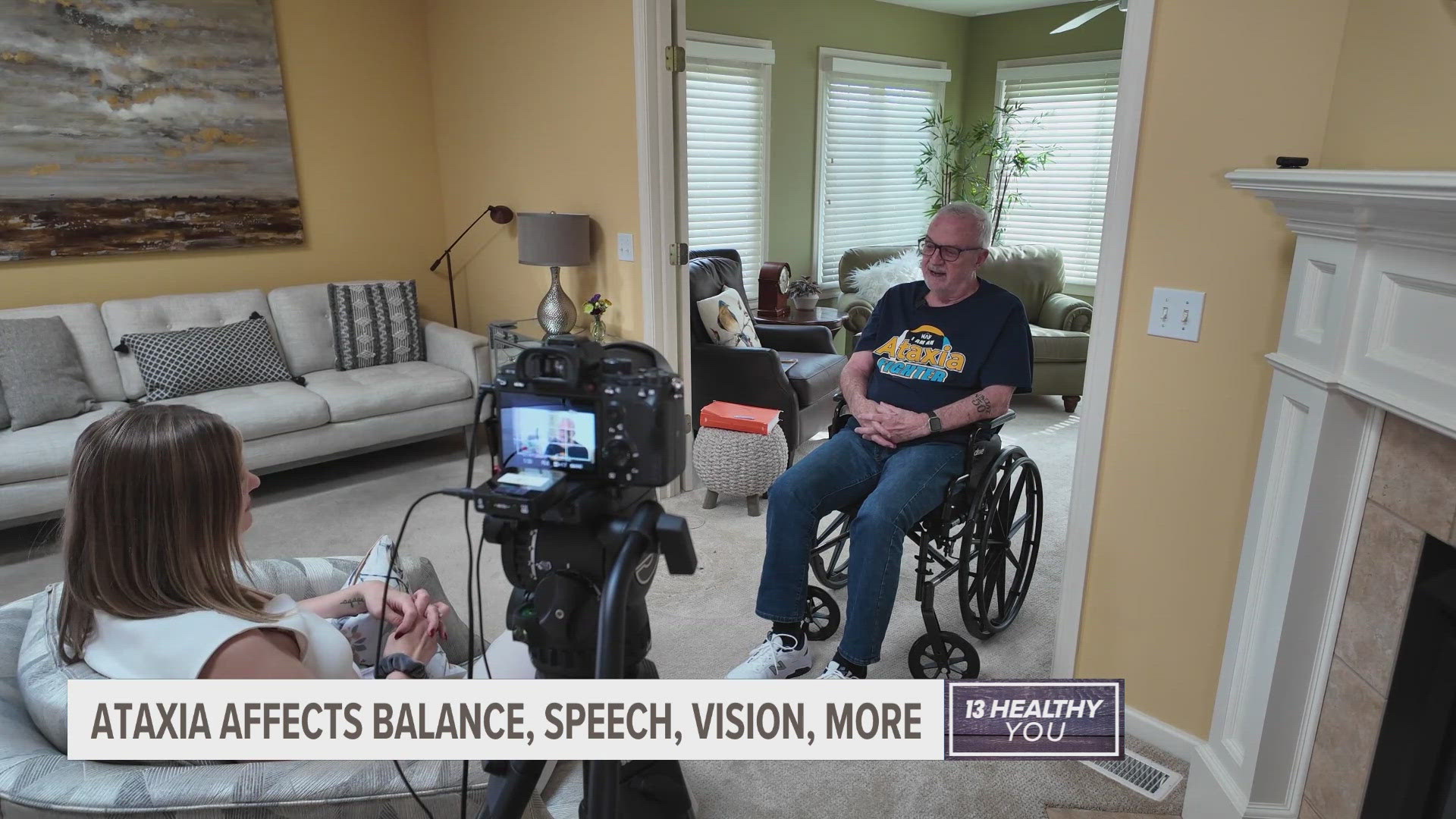GRAND RAPIDS, Mich. — Twenty years ago, Frederick Pepper, at 60 years old, knew something was wrong.
After a misdiagnosis for vertigo, a doctor found what was causing Pepper's unbalance.
"That doctor put the MRI of my head on the screen and immediately said I have ataxia," said Pepper. "I said, 'What's that?'"
Ataxia is a condition typically resulting from damage to the cerebellum. It describes poor muscle control, leading to a number of symptoms.
Ataxia can be both inherited and acquired. It can be caused by genetics, stroke, multiple sclerosis, alcohol misuse, tumors and more.
"You may have a stroke that happened once, and then you found out the reason, and you got it under control," said Dr. Nicholas Lannen, a neurologist at Corewell Health. "But the damage to your cerebellum is there, so you may be uncoordinated for many, many years."
For Pepper, 20 years after his diagnosis, he has trouble with his coordination, vision, swallowing and balance.
"I've been through a lot of physical therapy," said Pepper. "I've been very proactive, which I think has helped my situation because I've had this at least 20 years, and I'm just recently kind of relying on the wheelchair."


Lannen said ataxia is a general term for someone having incoordination of their muscle movement. It is a challenge to diagnose, he said, because it is not always obvious.
"Sometimes people just say, 'Oh, I'm clumsy,' and they don't look into it further," said Lannen.
Ataxia can be diagnosed at childhood, middle age or most commonly in older adults.
Pepper makes a point to stay active through his ataxia journey. For years, he attended a Rock Steady boxing gym, which specializes in boxing for people with Parkinson's Disease. He goes on family vacations and generally helps around the house.
He also wants to connect with other people who have ataxia. He meets once a month with a few people in West Michigan through a virtual support group.
"There's a lot of people that I know of that just give up," said Pepper. "Once you start sitting around, it really progresses."
There is no cure for ataxia. Treatment typically revolves around therapies, but depend on the cause.
If you think you may have ataxia, reach out to your doctor.

